
EVERY TIME I visit the Apple Park campus, my mind flashes to a tour I took months before construction was finished, when there was dust on the terrazzo floors and mud where lush vegetation now flourishes. My guide was Tim Cook, Apple's CEO. With a proprietor's pride, he ushered me through the $5 billion circular colossus, explaining that committing to the new campus was a "100-year decision." Today I am returning to the Ringpulsing with energy seven years after it opened to see Cook again. The tech world is at an inflection point. The mightiest companies will either stumble or secure their dominance for decades.
We are here to discuss Cook's big move in this high-stakes environment: the impending release of Apple Intelligence, the company's first significant offering in the white-hot field of generative AI. Some consider it belated. All year, Apple's competitors have been gaining buzz, dazzling investors, and dominating the news cycle with their chatbots, while the world's most valuable company (as I write) was showing off an expensive, bulky augmented-reality headset. Apple has to get AI right. Corporations, after all, are less likely than buildings to stand proud for a century.
Cook didn't panic. Like his predecessor Steve Jobs, he doesn't believe that first is best. "Classic Apple," as he puts it, enters a cacophonous field of first-movers and, with a strong grasp of novelty versus utility, unveils products that make the latest technologies relatable and even sexy. Think back to how the iPod rethought digital music.
It wasn't the first MP3 player, but its compactness, ease of use, and integration with an online store thrilled people with a new way to consume their tunes.
This story is from the January - February 2025 edition of WIRED.
Start your 7-day Magzter GOLD free trial to access thousands of curated premium stories, and 9,000+ magazines and newspapers.
Already a subscriber ? Sign In
This story is from the January - February 2025 edition of WIRED.
Start your 7-day Magzter GOLD free trial to access thousands of curated premium stories, and 9,000+ magazines and newspapers.
Already a subscriber? Sign In
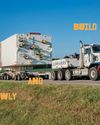
MOVE SLOWLY AND BUILD THINGS
EVERYTHING DEPENDS ON MICROCHIPS-WHICH MEANS TOO MUCH DEPENDS ON TAIWAN. TO REBUILD CHIP MANUFACTURING AT HOME, THE U.S. IS BETTING BIG ON AN AGING TECH GIANT. BUT AS MONEY AND COLOSSAL INFRASTRUCTURE FLOW INTO OHIO, DOES TOO MUCH DEPEND ON INTEL?

FOLLOW THAT CAR
CHASING A ROBOTAXI FOR HOURS AND HOURS IS WEIRD AND REVELATORY, AND BORING, AND JEALOUSY-INDUCING. BUT THE DRIVERLESS WORLD IS COMING FOR ALL OF US. SO GET IN AND BUCKLE UP.
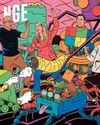
REVENGE OF THE SOFTIES
FOR YEARS, PEOPLE COUNTED MICROSOFT OUT. THEN SATYA NADELLA TOOK CONTROL. AS THE COMPANY TURNS 50, IT'S MORE RELEVANT-AND SCARIER-THAN EVER.

THE NEW COLD WARRIOR
CHINA IS RACING TO UNSEAT THE UNITED STATES AS THE WORLD'S TECHNOLOGICAL SUPERPOWER

CALIFORNIA DREAMIN'
KINDRED MOTORWORKS VW BUS - Despite being German, the VW T1 Microbus is as Californian as the Grateful Dead.

THE INSIDE SCOOP ON DESSERT TECH
A lab in Denmark works to make the perfect ice cream. Bring on the fava beans?
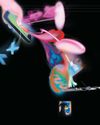
CONFESSIONS OF A HINGE POWER DATER
BY HIS OWN estimation, JB averages about three dates a week. \"It's gonna sound wild,\" he confesses, \"but I've probably been on close to 200 dates in the last year and a half.\"
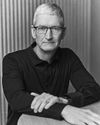
THE WATCHFUL INTELLIGENCE OF TIM COOK
APPLE INTELLIGENCE IS NOT A PLAY ON \"AI,\" THE CEO INSISTS. BUT IT IS HIS PLAY FOR RELEVANCE IN ALL AREAS, FROM EMAIL AUTO-COMPLETES TO APPS THAT SAVE LIVES.

COPYCATS (AND DOGS)
Nine years ago, a pair of freshly weaned British longhair kittens boarded a private plane in Virginia and flew to their new home in Europe.
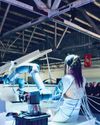
STAR POWER
The spirit of Silicon Valley lives onat this nuclear fusion facility's insane, top-secret opening ceremony.